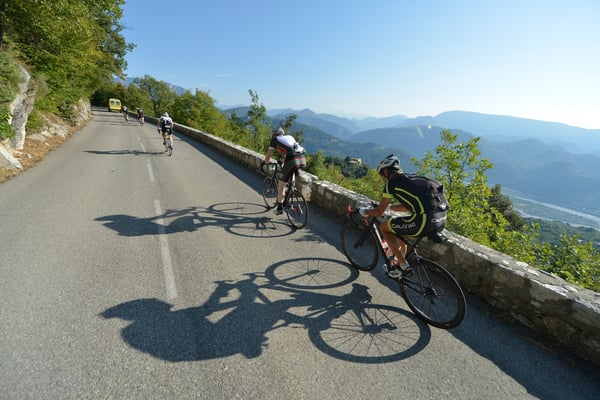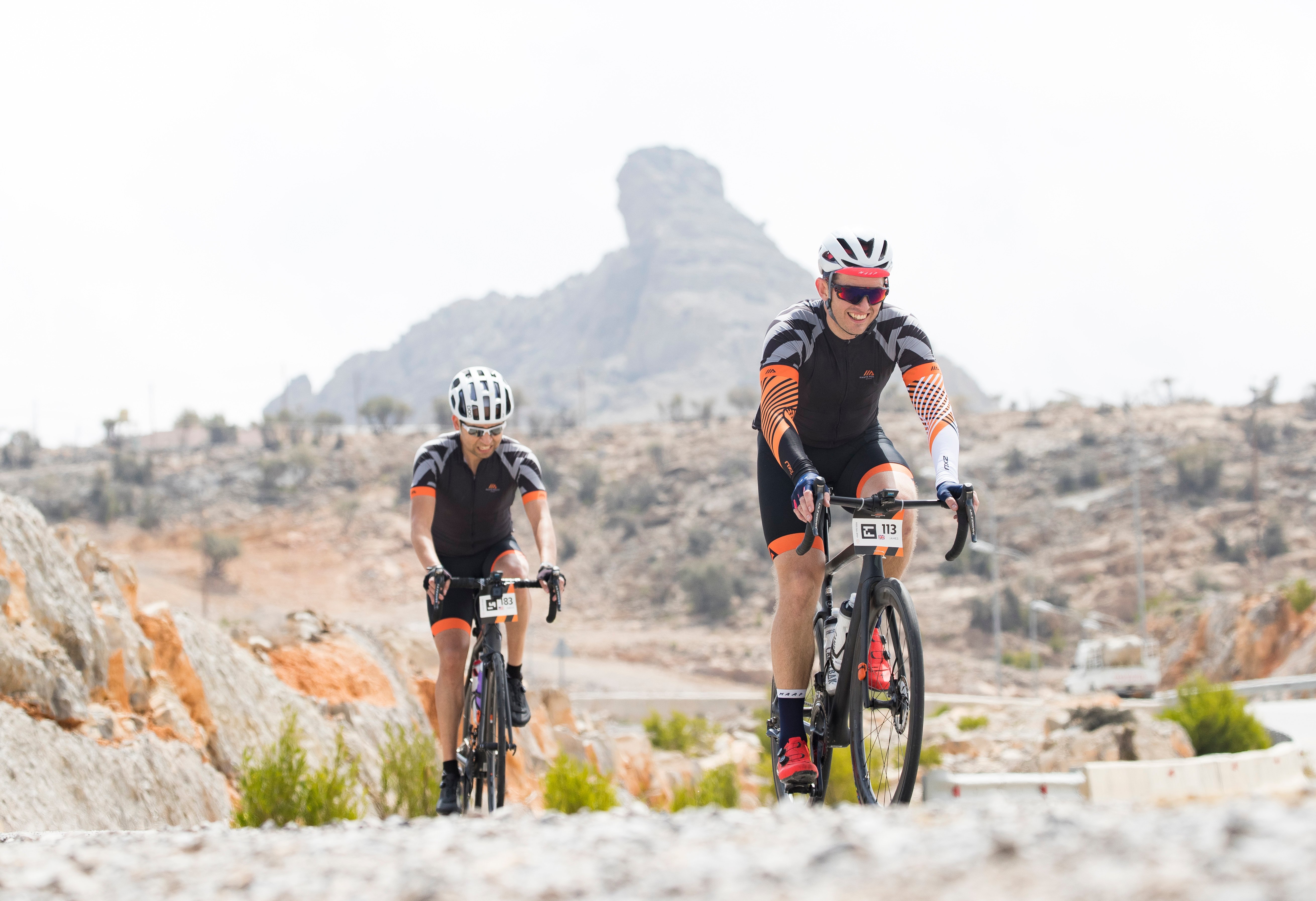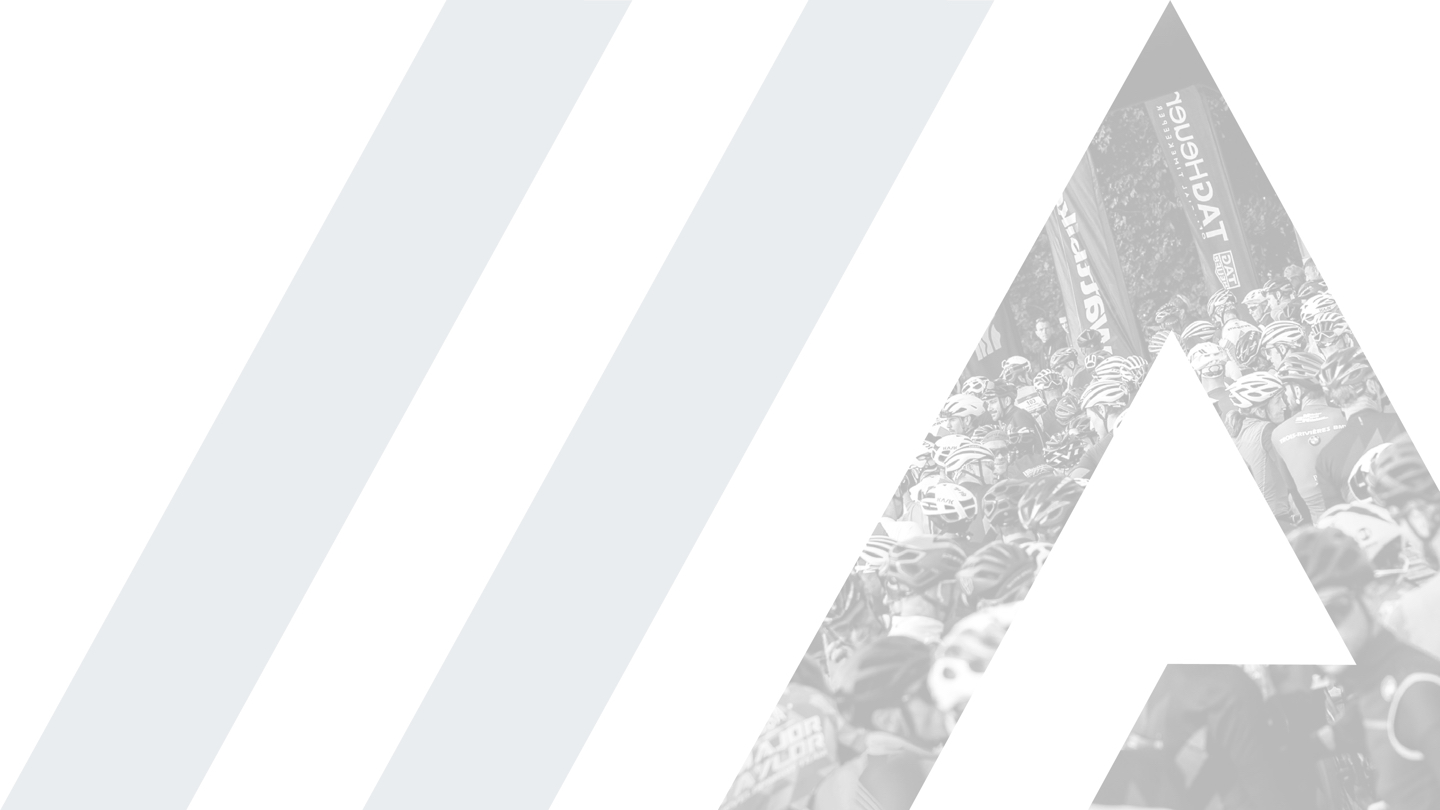An ancient former Haute Route ambassador Aaron Borrill and cycling coach Jarred Salzwedel of Sci-ence2Sport talk through some of the common mistakes people make when training for multi-day events and how to avoid them.
10 mistakes to avoid when training for multi-day events
I hear you. It’s easy to get overwhelmed when entering your first multi-day event. It’s a big step, no question - both in terms of the financial and time commitments you’ll need to make but it’s totally doable, even for the working-class amateur.
The secret?
Well, it all comes down to your preparation and training philosophy. Structured training is probably the single most important element when it comes to properly preparing for any event - not only will it make you stronger, it equips the body to deal with the stressors of back-to-back days in the saddle. You can But sticking to the prescribed training plan alone can only help you so much.
Here is some tips on Finding moments for Strength and conditioning in everyday life - there are additional factors such as nutrition, correct rest, equipment choice and mental fortitude which are often ignored. Below is a list of everything you should avoid to ensure you’re in fine fettle come race day.

1. Don’t Train When You Are Feeling Unwell
This is arguably one of the hardest realities to deal with as an athlete but it’s important to listen to your body. If you’re unsure about your symptoms it’s always advisable to speak to your physician and establish a plan of action.
Avoid any form of exercise if you’re suffering from a temperature (38+ degrees), sore throat, cough, muscle and joint aches or an elevated resting heart rate for consecutive days (2-3 days).
2. Complete Rest Isn’t Entirely a Good Thing
Despite popular belief, resting completely can be detrimental to your form entering a race. It’s advisable to rather focus on a tapering regime to ensure you’re firing on all cylinders. Tapering comprises reducing the total volume of training while still maintaining intensity.
«By resting completely, you are more likely to become excessively ‘fresh’ and could be-come lethargic or suffer from what is often described as dead/heavy legs» explains sports scientist and Science2Sport coach, Jarred Salzwedel.explains sports scientist and Science2Sport coach, Jarred Salzwedel.
«Reduce the number of training sessions as well as the total training time of each session, while focusing on 1-2 key sessions a week.»
3. Avoid Unstructured Rides
«Structured training plans are set out to generate a super-compensation effect that occurs during your recovery weeks,»says Salzwedel.
«This is essentially how you become fitter from training block to training block. By including unstructured sessions, you could be altering the result of the plan. Treat each session as an important one and focus on the quality of execution rather than Strava and its segment-hunting allure.»
To help you structure your training, you can join weekly virtual ride session with our ambassadors, on our section Meet & Ride.
4. Don’t Play Catch Up
Not everybody has the luxury of training like a professional cyclist and life can sometimes get in the way of preparing for your goal. If you’ve missed more than two consecutive sessions it’s a better idea to contact your coach for advice instead of winging it.
«Your training plan takes in to account many training parameters and by ‘catching up’ sessions you are accumulating fatigue that can negatively impact the sessions to follow,» explains Salzwedel.
«This will set you back and will often force an extended period of rest which may compromise your training goals.»
5. Avoid Public Areas After Hard Sessions
The immune system becomes suppressed after hard and fasted sessions making your body appreciably susceptible to contracting viruses or other illnesses. It’s imperative that you take the correct preventative measures to avoid falling ill at the wrong time.
There are six ways to prevent colds and infections:
1. Wash your hands regularly with soap and water
2. Avoid touching your nose and face
3. Avoid crowded places after exercise
4. Get your flu vaccination at the beginning of winter
5. Get plenty of sleep
6. Reduce your stress levels
7. Poor Nutrition
Nutrition is an often overlooked aspect of training and one that is of paramount importance both on and off the bike.
«It’s important to use the same nutrition supplements in training that you would use during a race,» says Salzwedel.
«Your gut needs time to adapt to what it has to process and digest, and this often involves training it just like your muscles. Training cannot overcome poor nutrition off the bike, so focus on eating a healthy balanced diet.» Aim to take in 60-80 grams of carbohydrates per hour during intense sessions and races using gels, bars, and an electrolyte drink. Here is some tips on How to stay hydrated when training for an Haute Route event by Precision Hydration.
.jpg?width=6000&name=DSC_2289%20(1).jpg) 6. Stay Away From Negative People
6. Stay Away From Negative People
«Having a positive mindset can make a massive improvement to your cycling,» adds Salzwedel.
«Try and surround yourself with like-minded people with positive vibes and similar goals. Using a keyword to change a negative into a positive is a good psychological skill that can benefit your cycling and help you get through tough periods on the bike - both during hard interval sets and race conditions.»
Meet other passionate cyclists from all over the world on our section Rides & Rendezvous.
7. Avoid Last-Minute Equipment Changes
It may sound like a no-brainer but it’s important to train with the equipment you’ll be using come race day. Often riders will change certain bike-fit parameters or even bike parts in an attempt to improve power delivery or drop weight but this invariably leads to injury and other niggles.
If you’re wanting to make any changes to your bike or set-up do so with enough time to allow your body to adapt and always consult a professional.
8. Avoid Too Many Group Rides
Coach Salzwedel advises that group rides should be limited or avoided altogether. «Group rides can often turn into races and while it is good to practice your bunch riding skills, it can be very difficult to stick to the prescribed session when group dynamics play out.»
«Try to focus on your sessions - nobody will remember the guy/girl that won the group ride coffee sprint but they will remember whether or not you got your Haute Route finisher medal,» he adds.
Training indoors should also be an option for key interval sessions and weather-affected rides. Remember to use a fan while training indoors as this will assist convective heat loss to mitigate the intensities of indoor training. Check out 8 ways to make your turbo trainer more enjoyable.
9. Try Not To Arrive the Day of the Race
The body needs time to adapt and adjust, particularly when travelling and it’s advisable to arrive at your race destination a few days before the event begins to acclimatise.
It’s also important to ensure you’re well hydrated on long-haul flights as the body tends to becomes dehydrated in a pressurised environment. It’s advisable to take along some hygiene wipes and ensure you follow the steps mentioned in point five.

Written by Aaron Borrill






